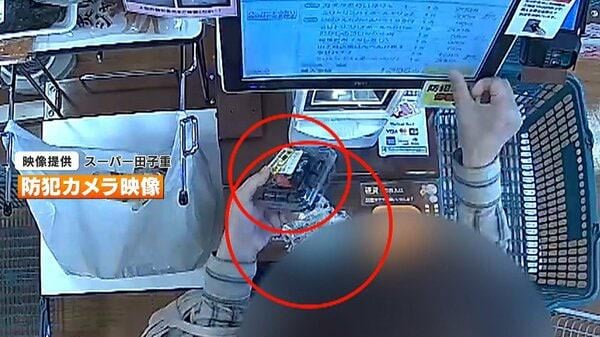
Shoplifting incidents involving the misuse of self-checkout systems are on the rise. Two years ago, the Tagojyu Togodaten supermarket introduced self-checkout machines to reduce labor costs and ease congestion. According to store manager Masaya Kondo, they have experienced an estimated 5 million yen in losses due to shoplifting over the past year.
Some customers repeatedly fail to properly scan items, leading to missing payments. When shoplifting is confirmed, the supermarket promptly reports it to the police, resulting in about 20 arrests over the year. Surveillance footage has captured various “sophisticated shoplifting techniques” using self-checkout.
One common tactic involves customers pretending to scan items like bags of rice, only to take them without paying. Another method includes scanning less expensive items while secretly placing unscanned items, like additional drinks or prepared foods, into bags.
The grocery store is combating these incidents by installing security cameras around the self-checkout area and displaying transactions on large monitors to deter theft. They are also working on new technology to help counteract shoplifting.
Earth Eyes Co. is developing a system called “Self-Reji Eye,” which uses AI and image recognition to detect suspicious movements. If an item is not scanned, the system displays an alert on the monitor, signaling to customers that they are being watched and potentially discouraging theft.
Shoplifting is a criminal offense carrying up to 10 years of imprisonment or a fine of up to 500,000 yen. In cases where a scanning error occurs by accident, it is important to report it to the store immediately, advises attorney Masaru Wakasa. Failing to report a mistake can lead to charges of “embezzlement of lost items,” with penalties including up to one year of imprisonment or a fine up to 100,000 yen. If the oversight is noticed after returning home, one should report back to the store to rectify the situation.
by MagazineKey4532
